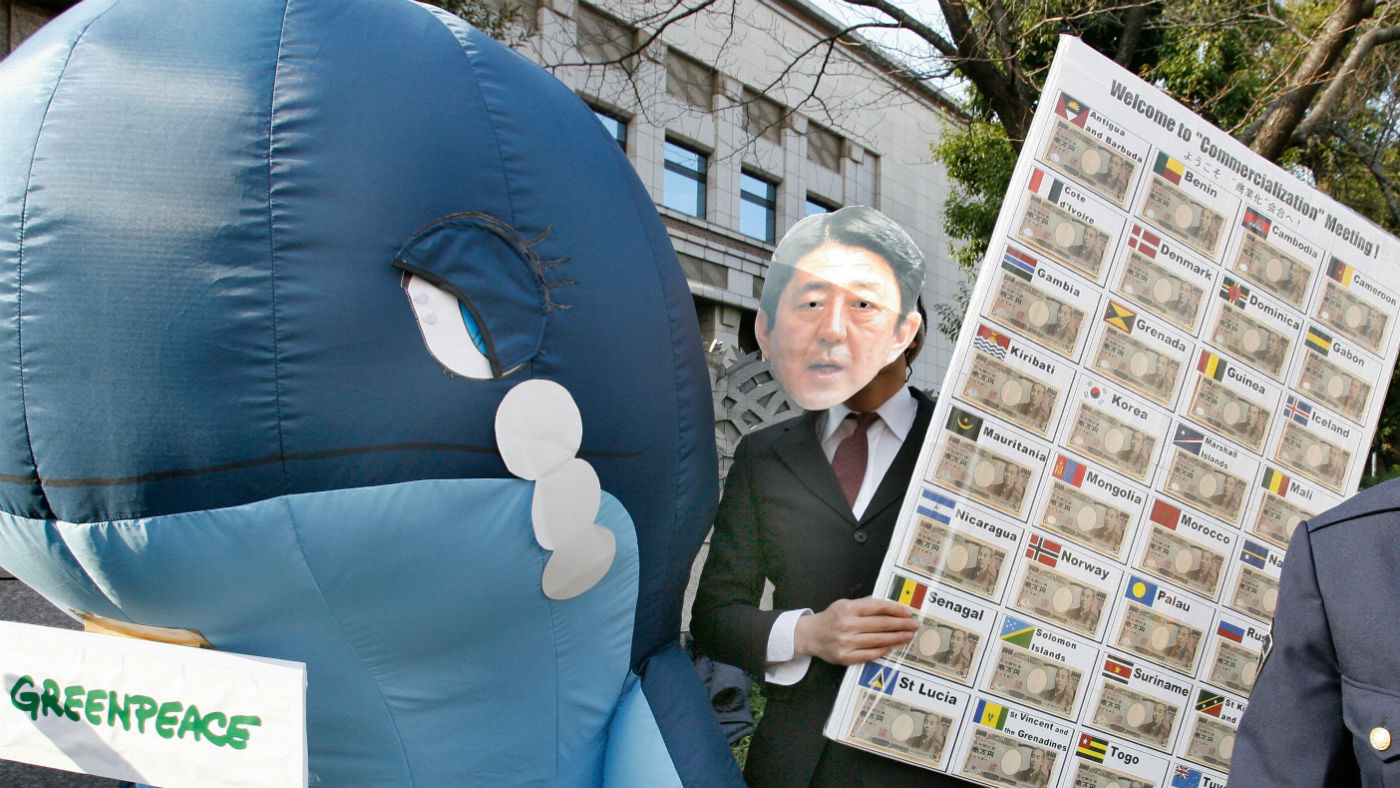Japan to resume commercial whaling after 30 years
Tokyo set to pull out of the International Whaling Commission in protest at anti-whaling stance

A free daily email with the biggest news stories of the day – and the best features from TheWeek.com
You are now subscribed
Your newsletter sign-up was successful
Japan is to pull out of the International Whaling Commission (IWC), opening the way to resume commercial whaling for the first time in 30 years.
Although there has been no official confirmation of the move, NHK reports the government has told its MPs of its decision.
Japan has been a member of the IWC since 1951, “but has an uneasy relationship with an organisation it believes has become fundamentally anti-whaling after originally being set up to address sustainability in the industry”, says The Independent.
The Week
Escape your echo chamber. Get the facts behind the news, plus analysis from multiple perspectives.

Sign up for The Week's Free Newsletters
From our morning news briefing to a weekly Good News Newsletter, get the best of The Week delivered directly to your inbox.
From our morning news briefing to a weekly Good News Newsletter, get the best of The Week delivered directly to your inbox.
Commercial whaling was formally banned by the IWC in 1986 after some species were driven almost to extinction.
For many years Japan has hunted whales for what it calls “scientific research” and to sell the meat, a “programme widely criticised by conservationists” says the BBC.
The Japanese government is expected to cite the recovery of certain whale species as justification for the move, although it's thought to be considering whaling only in its own waters.
Nevertheless, Japan Today says “such a move would spark international criticism against Japan over whale conservation and deepen the divide between anti- and pro-whaling countries”.
A free daily email with the biggest news stories of the day – and the best features from TheWeek.com
In a tense IWC meeting in September, anti-whaling nations, led by Australia, the European Union and the United States, defeated Japan's bid to return to commercial whaling by 41 votes to 27.
Pro-Whaling nations, such as Japan, Norway and Iceland, argue the practice is part of their culture and should continue in a sustainable way.
Iceland, along with Norway, “openly defies” the IWC's 1986 ban on commercial whaling, says Japan Today.
The Japan Times notes “it is extremely rare for Japan to withdraw from an international organisation”, but according to the BBC, even if it did leave the IWC, Tokyo would “still be bound by certain international laws”.
The UN Convention on the Law of the Sea binds countries to co-operate on the conservation of whales “through the appropriate international organisations for their conservation, management and study”, although the text does not say which international organisation that is.